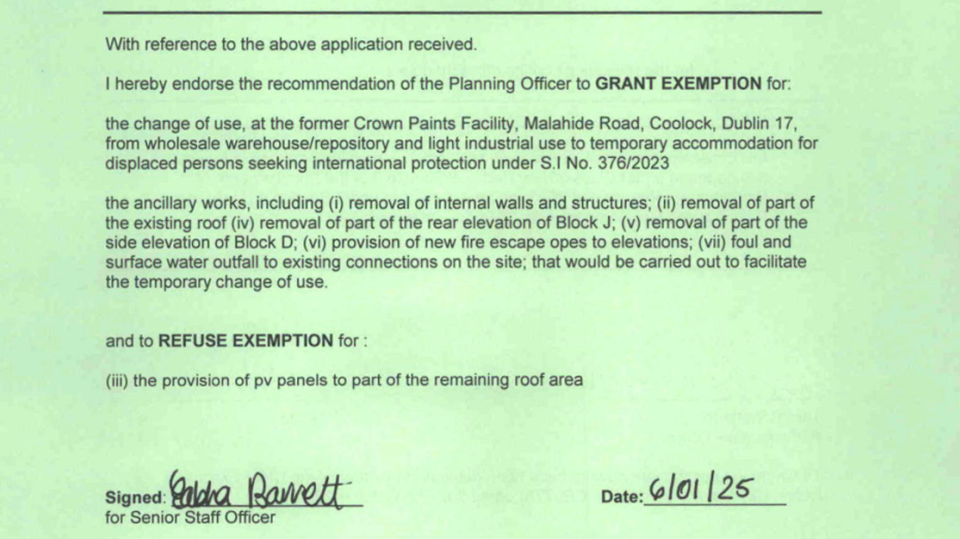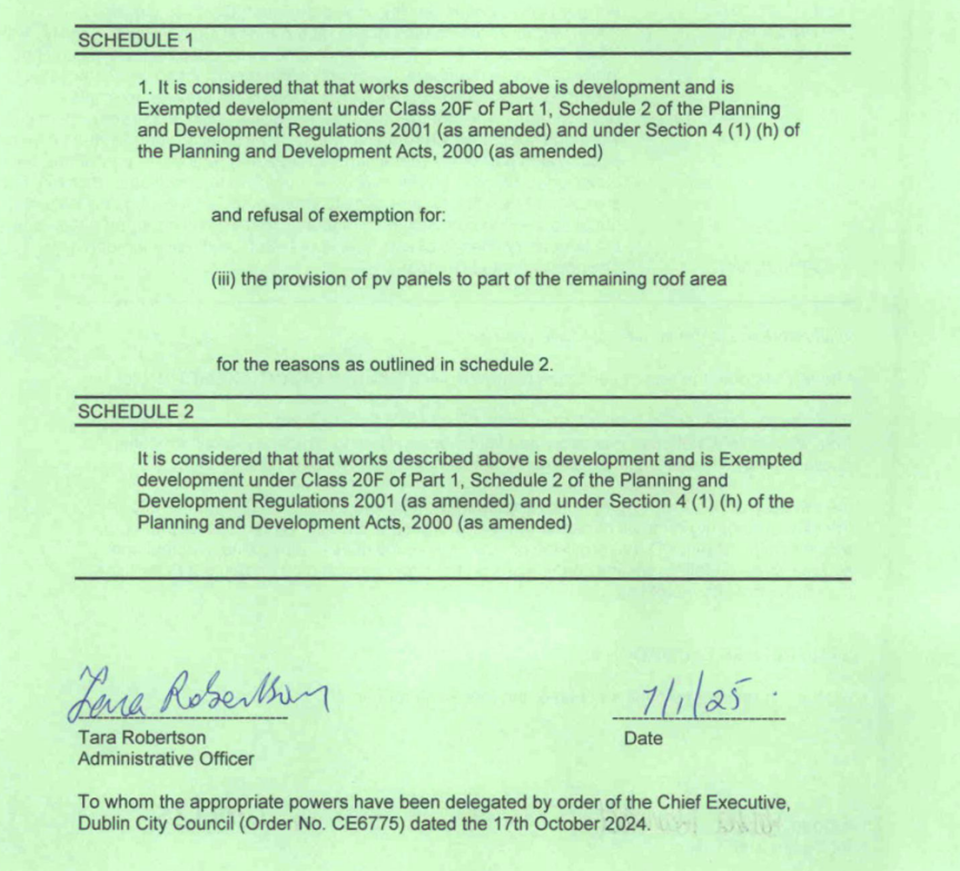As I reported last week one of the pre Christmas applications to the planning authorities in Dublin City Council was from Townbe, the company seeking to open an IPAS centre at the former Crown Paints factory in Coolock.
That request, filed on December 2nd, requested that the City Council state whether works planned by Townbe at the site in order to prepare it for use as an accommodation centre were in fact exempted under the Ministerial orders which exempt such premises from normal planning guidelines if they are to be used to accommodate people claiming to be refugees.
As I explained, Townbe and other contractors appeared to be uncertain whether the exemption applied to their proposals other than in a general way under Class 20F to exempt the premises itself but not any renovation works. It would seem that Dublin City Council has agreed that those works as set out by Townbe in their application are exempted.
These include pretty extensive work such as the “removal of internal walls and structures; (ii) removal of part of the existing roof.” These are particularly important in the context of the old Crown Paints site as objectors had pointed out, and the High Court accepted in an October ruling, that renovations would involve the removal of asbestos which is categorised as a dangerous toxic material.

In a decision made on Monday, the City Council has decided to grant an exemption for the proposed works with the exception of “the provision of pv panels to part of the remaining roof area.” The overall practical effect of the decision, however, is that Townbe presumably can commence work on the site in order to make it suitable for the purpose intended, ie. as an IPAS accommodation centre. There would seem to be nothing to prevent them starting immediately if they so wish.

Crucially, for Townbe and indeed for others who have requested clarification from Dublin City Council and perhaps other local authorities, the Dublin decision confirmed the Coolock exemption under both Class 20F and Section 4 of the amended Planning and Development Acts 2000.
What happens next we shall have to await and see. Local groups opposed to the proposal to site an IPAS centre at Crown have reacted by re-emphasising their determination to prevent it going ahead. That may once again come to public protests if Townbe engages contractors to begin work on the site soon, as they are allowed to.
It would also appear that any engagement – some of it reported here – by Townbe and persons claiming to be mediators have had no impact regarding any change to the company’s intent – nor indeed the state’s intent – to use the former paint factory to construct an IPAS centre.
Good faith is required in any such engagements and I intend to expand upon this in the near future with regard to some of those engagements and some of those who were engaged by Townbe and others in what they presented as a consultation process with groups and persons opposed to the proposal.